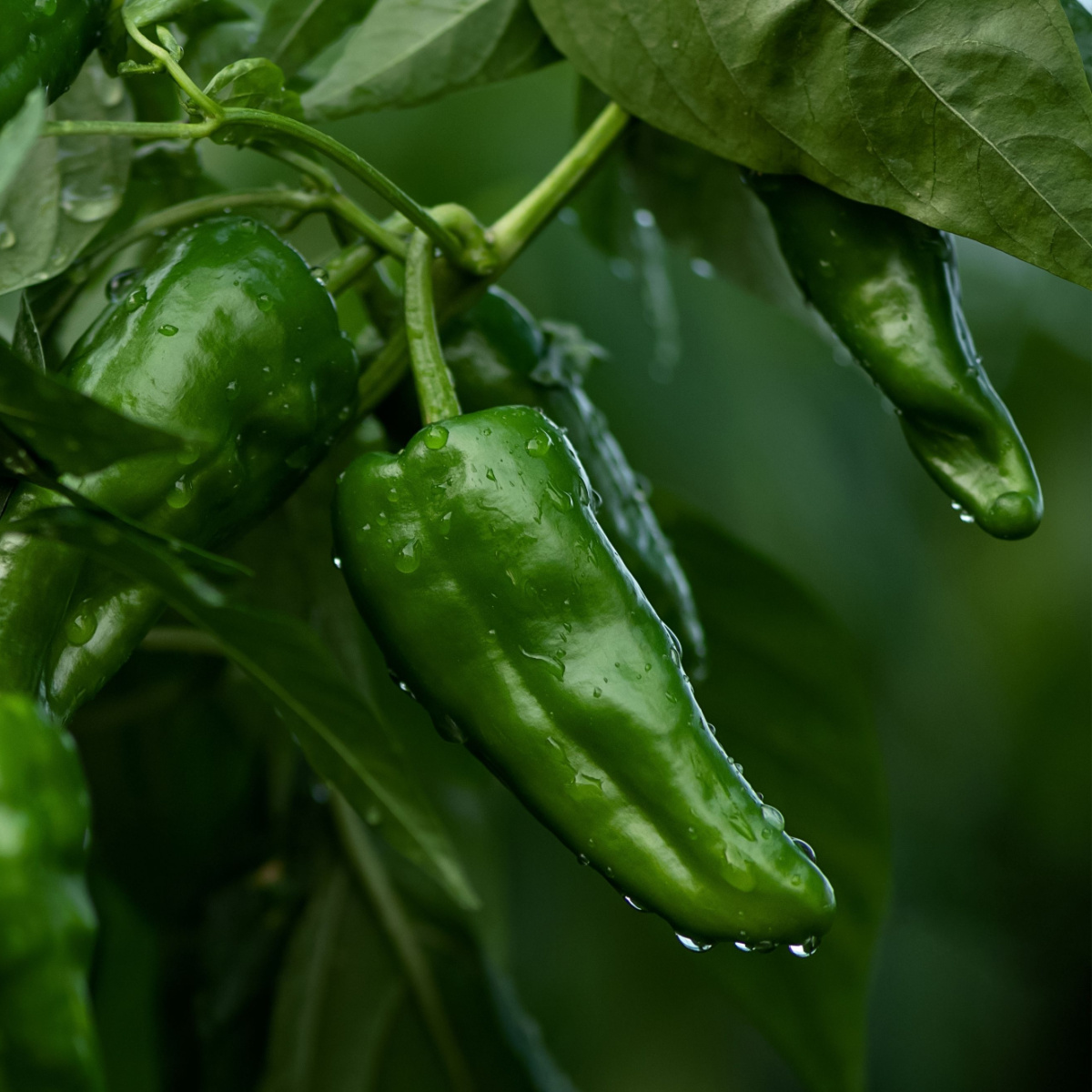Premier Fertilizers for Peppers: Boost Your Harvest Top Quality
Premier Fertilizers for Peppers: Boost Your Harvest Top Quality
Blog Article
Organic Vs. Synthetic Fertilizers: Which Is Best for Nurturing Healthy Pepper Plants?
In the world of supporting healthy pepper plants, the choice in between artificial and natural fertilizers stands as a pivotal choice with significant implications. While both options purpose to supply important nutrients to support plant growth, the subtleties of their effect on the soil, plant wellness, and the atmosphere spark a debate that mirrors throughout the gardening community. Comprehending the unique advantages and possible risks of each fertilizer kind is critical for pepper farmers seeking to maximize their yields while maintaining an eco-conscious and lasting method.
Benefits of Organic Fertilizers
Organic plant foods offer an environmentally-friendly and sustainable strategy to nourishing pepper plants, giving vital nutrients without using artificial chemicals. These all-natural fertilizers are originated from organic resources such as compost, manure, bone meal, and algae, promoting dirt wellness and biodiversity. Unlike artificial fertilizers, natural choices launch nutrients slowly, ensuring a well balanced and stable supply for pepper plants to grow.
One considerable advantage of organic plant foods is their ability to enhance dirt framework and water retention. By enhancing soil wellness, natural fertilizers promote beneficial microbial activity, which assists in nutrient uptake by pepper plants. Additionally, organic fertilizers minimize the threat of chemical run-off, protecting water sources from contamination and safeguarding the environment.
Additionally, natural plant foods add to long-term soil fertility by promoting the growth of helpful dirt microorganisms. These microorganisms help break down organic matter, launching nutrients in a type that is easily accessible to pepper plants. best fertilizers for peppers. By cultivating a healthy and balanced soil ecological community, natural plant foods support lasting pepper growing techniques that profit both plants and the setting
Downsides of Artificial Fertilizers
Synthetic fertilizers, in comparison to their natural counterparts, posture various disadvantages when made use of to nourish pepper plants, impacting both plant health and ecological sustainability. One major drawback of artificial fertilizers is their propensity to leach nutrients from the soil quickly.
Moreover, the overuse of artificial plant foods can contribute to water contamination. Excess fertilizers not taken in by plants can clean away into water bodies, bring about eutrophication, where algae blossoms deplete oxygen degrees in the water, harming aquatic life. Artificial plant foods are usually acquired from non-renewable resources, such as fossil fuels, contributing to carbon emissions and ecological deterioration throughout their manufacturing.
Nutrient Absorption Contrast
Effective nutrient absorption plays an important role in the total health and wellness and growth of pepper plants. When contrasting artificial and natural fertilizers in regards to nutrient absorption, natural fertilizers have the advantage of supplying a more balanced and slow-release source of nutrients (best fertilizers for peppers). Organic plant foods have a range of macro and micronutrients that are not only beneficial for the plants yet likewise advertise healthy soil microbial activity, which assists in nutrient uptake. On the other hand, synthetic plant foods usually offer visit homepage a fast launch of nutrients, which can lead to seeping and overflow, resulting in reduced nutrient absorption prices by the plants.
In addition, natural fertilizers improve soil framework and water retention capability, enabling pepper plants to gain access to nutrients a lot more efficiently. This better dirt high quality assists in origin growth, making it possible for much better nutrient absorption. Synthetic plant foods, although at first enhancing plant growth due to their high nutrient concentrations, might impede lasting nutrient absorption by derogatory soil health and wellness over time.
Ecological Influence Considerations

On the various other hand, synthetic fertilizers, although usually even more concentrated and promptly readily available to plants, can have harmful effects on the environment if not applied correctly (best fertilizers for peppers). Their production needs high energy inputs, causing greenhouse gas exhausts and adding to environment modification. The runoff of excess artificial fertilizers can pollute water resources, leading to eutrophication and hurting water communities.
Finest Plant Food Practices for Peppers
When feeding pepper plants, enhancing nutrient uptake and minimizing ecological influence are essential considerations. To achieve this, it is vital to adhere to finest fertilizer methods tailored to the particular demands of pepper plants. One essential method is to execute a dirt test before using any fertilizers. This test can identify the pH level of the soil and identify any nutrient shortages, assisting you in choosing the most suitable fertilizer solution.
One more vital practice is to feed pepper plants at the correct time. Normally, peppers gain from obtaining plant food at growing and then once more when they begin to flower. Over-fertilizing can bring about nutrient discrepancies and hurt the plants, so it is crucial to adhere to recommended application prices.
Additionally, choosing a balanced fertilizer with an NPK ratio that suits pepper plants' demands is fundamental. Organic fertilizers, such as compost or manure, can be exceptional options as they launch nutrients gradually and boost dirt browse around this site framework in time. Synthetic fertilizers can supply a fast nutrient boost when needed. Ultimately, incorporating natural and artificial fertilizers judiciously can aid nurture healthy and balanced pepper plants while lessening ecological influence.
Verdict

Organic plant foods provide a sustainable and environmentally-friendly strategy to beneficial pepper plants, providing crucial nutrients without the usage of synthetic chemicals. Unlike synthetic fertilizers, natural alternatives launch nutrients gradually, guaranteeing a well balanced and steady supply for pepper plants to flourish.
Synthetic plant foods, in contrast to a fantastic read their natural counterparts, position various negative aspects when utilized to nurture pepper plants, influencing both plant health and environmental sustainability. When comparing synthetic and organic fertilizers in terms of nutrient absorption, organic fertilizers have the advantage of providing a more balanced and slow-release source of nutrients.Furthermore, natural plant foods boost dirt structure and water retention ability, enabling pepper plants to gain access to nutrients a lot more effectively.
Report this page